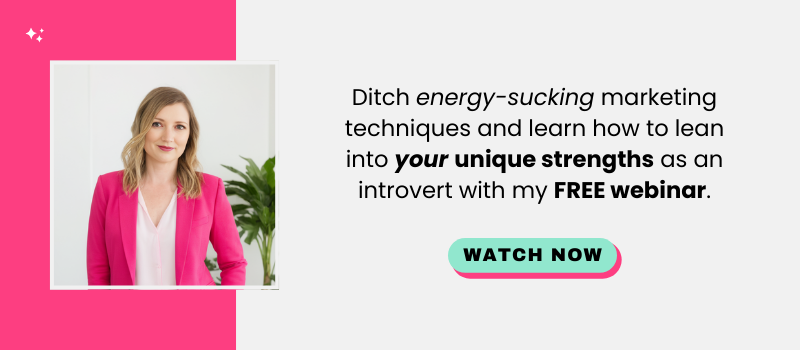Struggling to get the results you want from your emails?
Discover 15 simple yet powerful ways to elevate your email marketing and start seeing real engagement!
Grab your freebie!
Blog Categories
Helping small business owners, virtual assistants, and creative entrepreneurs grow their business.
Hi, I'm Tara! I'm a multi-passionate business and marketing coach.
learn more + get a copy:
Last Updated on October 13, 2025 by Tara Reid
Limiting beliefs can sneak into your mind and hold you back from building the business you’ve always wanted — especially as an introverted entrepreneur. These beliefs might whisper that you’re not good enough or that competing in your industry isn’t even worth attempting. I’ve been there, and I know how paralyzing they can feel. But, the truth is, they’re not facts — they’re just stories we tell ourselves. In this post, I’ll share five of the most significant limiting beliefs I had to overcome, and how breaking free from them helped me create a more sustainable business on my terms.
Disclaimer: I earn from qualifying purchases. Some of the links on my website are affiliate links, which means, at no additional cost to you, I will earn a small commission if you click through and make a purchase.
If this resonates with you, you’re not alone. Many introverts face these same challenges, as discussed in my Introvertpreneur podcast and programs like the Introvertpreneur Club. Let’s uncover these beliefs and start rewriting the narrative together.
Understanding Limiting Beliefs
Limiting beliefs are those persistent thoughts or assumptions that hold us back from reaching our goals. They creep in subtly, often disguised as “realistic” concerns, but they can shape how we see ourselves and our abilities. As introverted entrepreneurs, these beliefs can feel especially loud.
But here’s the truth: they’re not permanent, and they’re certainly not the whole story.
Let’s break this down further.
The Psychology Behind Limiting Beliefs
To understand how limiting beliefs form, we need to start with the human mind and the way it processes experiences. These beliefs often begin in childhood or during pivotal moments of failure or rejection. Our brains are wired to protect us, so when we experience something negative, our mind creates associations to avoid repeating that pain.
For example, if you struggled with public speaking as a kid and felt embarrassed, you might carry the belief that you’re “just not good at expressing yourself.” This turns into a filter through which you make decisions, subconsciously steering you away from situations that challenge it.
Over time, these beliefs embed themselves, shaping how you perceive what’s possible. They’re not facts — they’re patterns your brain built to avoid risk.
This is why you might catch yourself thinking, “I can’t compete where I don’t compare,” when you see someone else thriving in business. But that’s just your mind playing tricks on you, trying to keep you safe. If you’re curious about breaking free of these patterns, I’ve discussed strategies in this podcast episode.
Impact of Limiting Beliefs on Introverted Entrepreneurs
As introverts, our strengths are often rooted in reflection, observation, and a deep approach to connecting. But limiting beliefs can easily overshadow these strengths. For instance, you might think, “I’m not outgoing enough to market myself,” or “I’ll never stand out in a noisy space.” These thoughts don’t reflect reality — they’re roadblocks we place on ourselves.
Here’s how these beliefs show up specifically for introverted entrepreneurs:
- Fear of visibility: You might hesitate to share your ideas, convinced they’re “not good enough.”
- Over-analyzing interactions: After a meeting or call, you replay every word, assuming you didn’t make a strong impression.
- Avoiding certain strategies: Platforms or methods that seem “too competitive” (like social media) can feel off-limits because of deep-seated doubts.
But here’s the twist: these beliefs are holding you hostage. You already have what it takes to succeed without stepping into someone else’s spotlight. Introverts thrive when they lean into strategies that align with their energy.
Want examples? Check out how systems can make it easier for introverted entrepreneurs to stay organized and productive in this blog post.
Remember, limiting beliefs stem from stories we’ve told ourselves for years. But stories can be rewritten. Once you identify the pattern, you hold the power to choose a different direction.

1. Fear of Visibility
Fear of visibility is one of the most common limiting beliefs that holds entrepreneurs back, especially introverts. I used to feel like shrinking into the background was safer, even though I knew it was keeping me from building a successful, sustainable business. To put it simply — staying invisible felt comfortable but ultimately stagnant. Let’s break this down.
Consequences of Being Invisible
Playing it safe and avoiding visibility might feel like a protective mechanism, but the long-term consequences can be damaging. Here’s what I personally experienced:
- Missed Opportunities: By staying quiet and not sharing your message, countless opportunities can pass you by. For me, this was partnerships, collaborations, and even new clients.
- Stalling Growth: Not putting yourself out there often means you’re slowing down the growth of your business. People can’t hire you if they don’t know you exist.
- Increased Isolation: Being invisible can reinforce feelings of isolation. I thought I was protecting myself, but all I was doing was cutting myself off from a supportive community.
Fear of visibility forces you to operate from a place of scarcity. It’s like trying to grow a garden but refusing to let in the sunlight — no light equals no growth. If this resonates, you’re not alone. It’s a struggle plenty of introverts deal with, but it’s entirely possible to overcome.
Strategies to Overcome Visibility Fears
Tackling the fear of visibility starts with taking small, intentional steps.
Here are strategies that worked for me, and I hope they help you too:
- Start with Low-Stakes Platforms: Instead of diving into high-pressure content creation, I focused on platforms where I felt in control. Writing and sharing on my blog or creating email newsletters gave me confidence without overwhelming exposure. If you’re curious about sustainable, introvert-friendly business strategies, dive into this discussion with Katherine Mackenzie-Smith.
- Shift Your Mindset: I reframed visibility not as self-promotion but as service. Instead of thinking, “I don’t want to brag,” I reminded myself that sharing my expertise might help someone solve a problem. This subtle mindset shift changed everything.
- Leverage Introvert-Friendly Tools: Strategies like podcasting, blogging, or email marketing felt more aligned with my energy than social media. This workshop is an excellent resource for introverts exploring marketing methods that work without burning out.
- Take Small Risks: Visibility isn’t about shouting from the rooftops overnight. I started by joining small communities and sharing value, without worrying about perfection. Over time, those small actions built my confidence.
Remember, you don’t have to go from invisible to fully visible overnight. Growth is incremental. Every step, no matter how small, is progress toward building a sustainable business that aligns with who you are.

2. Fear of Failure
Fear of failure was a belief that kept me stuck for longer than I’d like to admit. It’s that nagging voice in your head that says, “What if I screw this up?” or “What if I’m just not good enough?” For introverted entrepreneurs, this fear often feels amplified because we’re already wired to overthink and analyze every potential outcome. The truth is, this constant worry isn’t protecting you — it’s limiting you.
Recognizing the Fear of Failure
I remember the first time I wanted to launch a new service in my business. I was so excited about the idea at first, but as launch day got closer, those intrusive thoughts crept in.
What if no one buys this? What if people think it’s terrible?
I ended up delaying the project multiple times, telling myself I needed to “perfect” it. Deep down, I wasn’t striving for excellence — I was terrified of messing up.
Another moment that stands out was when I had to step into a leadership role in a group project. I spent hours analyzing every tiny detail, worried that making one wrong move would ruin everything. Looking back, this pattern wasn’t about capabilities — it was about fear.
If you’re feeling paralyzed by fear of failure, trust me, I’ve been there. You’re not alone, and it’s 100% possible to move past it. For many introverts, this fear is intertwined with struggles like self-doubt, as discussed in this podcast episode.
Reframing Failure as Growth
What finally helped me break free from this limiting belief was changing the way I viewed failure. Instead of seeing it as the end of the road, I started treating failure as essential feedback — a way to refine and improve. Think of failure like learning to ride a bike: you’re likely going to wobble or fall a few times, but each fall teaches you something important.
One pivotal shift came from reminding myself that every successful entrepreneur has faced failure at some point. It’s not a sign you’re unqualified; it’s proof you’re trying. I also began taking small risks, reframing mistakes as growth opportunities instead of personal flaws.
If this resonates, I dive deeper into shifting your mindset in this post about imposter syndrome and being vulnerable.
Here’s what reframing failure taught me:
- Failures are temporary, but lessons are permanent. With each setback, I gained clarity and determination.
- Taking action beats perfection every time. Waiting for the “perfect” moment or solution only delays your growth.
- Every failure gets you closer to success. It’s like mining for gold—you have to sift through the dirt to find the treasure.
If fear of failure is holding you back, start small. Take one step. Launch that imperfect idea. As I’ve learned, showing up, even when it’s scary, leads to breakthroughs you never thought possible.
3. Afraid to Say No
When I first started my entrepreneurial journey, saying “yes” felt like the only way to go. Yes to every client. Yes to projects that didn’t align with my goals. Yes to timelines that stretched me too thin.
Deep down, I was afraid saying “no” would lead to missed opportunities or, worse, upset others. But what I didn’t realize was that this habit of overcommitting wasn’t sustainable — and it was costing me more than I knew.
The Importance of Boundaries
Boundaries aren’t just a nice-to-have — they’re a cornerstone for building a sustainable business. Without them, it’s easy to let others dictate your time, energy, and focus. For introverted entrepreneurs, boundaries are even more important. They protect our energy and ensure we have the space to focus on what truly matters.
In the beginning, I struggled to separate “being helpful” from “being overworked.” I felt like saying yes to everything made me reliable and likable. But it quickly turned into exhaustion and burnout. Setting boundaries doesn’t mean you care less — it means you care enough about your work (and yourself) to uphold a healthy balance.
If this hits home, you might enjoy learning more about setting client boundaries and how they can help you grow your business on your terms. It takes practice, but once those boundaries are in place, you’ll notice a significant shift in how you run your day-to-day operations.
Learning to Say No
Saying no doesn’t come naturally to everyone — especially if you’ve spent years trying to please others. For me, learning to say no was one of the hardest lessons I faced as an entrepreneur. But here’s the truth: every “yes” to something misaligned is a “no” to something better suited for your goals.
Here’s how I approached this:
- Reframe What No Means: Learning to say no isn’t about rejecting others; it’s about prioritizing yourself. I stopped seeing “no” as selfish and started treating it as self-preservation.
- Set Clear Guidelines: I wrote down what aligned with my goals and values. If an opportunity didn’t fit, it was an automatic no. This clarity saved me from overthinking or second-guessing on the spot.
- Practice Polite Declines: Sometimes saying no is all in the delivery. I practiced polite but firm responses, like, “Thanks for thinking of me, but this doesn’t align with my current priorities.” It’s simple but effective.
If you’re still hesitant, diving into this guide on saying no as a new freelancer or virtual assistant might help. It’s packed with actionable tips and examples to make this process feel more natural.
The biggest shift came when I realized that saying no didn’t close doors — it opened new ones. By filtering out the things that didn’t serve me, I made room for projects, clients, and opportunities that aligned perfectly with my long-term goals.

Other Limiting Beliefs I’ve Overcome
Limiting beliefs come in all shapes and sizes. While some are louder than others, they all have one key thing in common — they hold you back. Over the years, I’ve tackled quite a few of these beliefs head-on, and while it wasn’t easy, the growth that followed was worth it.
In this section, I’ll share two big ones: imposter syndrome and the fear of success. These sneaky beliefs often disguise themselves as protective mechanisms, but in reality, they’re barriers to the sustainable business you’ve been dreaming of. Let’s break them down.
5. Imposter Syndrome
Imposter syndrome was my constant shadow for a long time. You know that little voice that tells you, “You’re faking it, and soon everyone’s going to see through you?” That voice had me questioning every project, every accomplishment, and even my right to call myself an entrepreneur.
It manifested in subtle but significant ways. For example, I’d second-guess the value of my services, wondering if people would really get the results they wanted — even though they always did. Or I’d avoid applying for certain speaking gigs or collaborations because I was convinced I wasn’t “qualified enough.” Imposter syndrome can feel like having one foot on the gas and the other on the brake — your ambition pulls you forward, but self-doubt slams you back.
What I’ve come to realize is that imposter syndrome isn’t a reflection of my capabilities; it’s just a loud inner critic trying to keep me in my comfort zone. If this resonates, I’ve shared actionable advice and insights in this blog post about overcoming imposter syndrome. It’s a journey, but recognizing it is the first step.

6. Fear of Success
This one caught me off guard. For the longest time, I thought failure was my biggest fear — until I started noticing how I’d hesitate every time success felt within reach. Success can feel overwhelming, and for introverts, the idea of more visibility and responsibility can be downright scary.
Fear of success often shows up like this:
- Self-sabotage: You procrastinate big, exciting projects because succeeding would mean stepping out of “comfortable” routines.
- Overwhelm: You focus on all the changes success might bring—like hiring a team, juggling more clients, or being in the spotlight—and convince yourself it’s too much.
- Guilt: You question whether you deserve success, especially if you compare yourself to others who might still be struggling.
For me, it looked like undervaluing my services and delaying launches, all while telling myself I just needed “more time” to perfect things. The truth? I was scared of what would happen if I actually reached the goals I’d been chasing.
Acknowledging this fear was a game-changer. Success isn’t the enemy; it’s an evolution. It comes with new challenges, sure, but also new opportunities for growth. To dive deeper into managing this fear, check out this podcast episode on overcoming the fear of success.
Remember, both these beliefs—imposter syndrome and fear of success — are just stories you’re telling yourself. But the beautiful thing about stories? You can write new ones.

Final Thoughts
Breaking free from limiting beliefs is an ongoing journey, but it’s one that opens doors to a more authentic and sustainable business. The stories we tell ourselves — whether they’re about fear, visibility, or self-worth — aren’t the truth. They’re just patterns we’ve adopted, and patterns can be changed.
Take a moment to reflect on the beliefs that might be holding you back. Are they really based on facts, or just fears? Small, consistent steps toward redefining those beliefs will make all the difference.
Remember, building a business that aligns with your strengths and values isn’t just possible — it’s absolutely within your reach. What limiting beliefs will you start rewriting today?
Tara Reid is a multi-passionate business and marketing strategist for introverted entrepreneurs who want to grow without relying on hustle culture or social media. With 18+ years of online business experience, she helps course creators, service providers, and digital product sellers build sustainable businesses through evergreen marketing, blogging, SEO, Pinterest, and email.
As the founder of the Introvertpreneur Club, Tara’s mission is to show heart-centered entrepreneurs that you don’t have to be loud to be successful. You just need the right strategies that fit your personality.
When she’s not supporting clients or creating new resources, you can find her at home in Canada with her three rescue dogs, a cup of coffee in hand, dreaming up her next project.
The Introvertpreneur Podcast
listen in to the top rated business podcast that is designed for introverted entrepreneurs who want to grow + scale in a more sustainable and fun way!
Top rated podcast
This one's on me. Complimentary free stuff coming right up.
leaving so soon?
Look behind the curtain and see exactly what I do every week, month, and quarter, to market my business without social media (in under 5 hours per week)!
The Quiet Marketing Playbook
Take this free quiz and learn what your superpower is as an entrepreneur. You'll also get a curated list of my best resources and tips for using your superpower to your advantage!
What's your Introverted Superpower?
Best Free Resources:
dig into 'em now!
A business strategist and marketing coach who focuses on helping course creators, coaches, and service providers, build sustainable businesses without social media.
